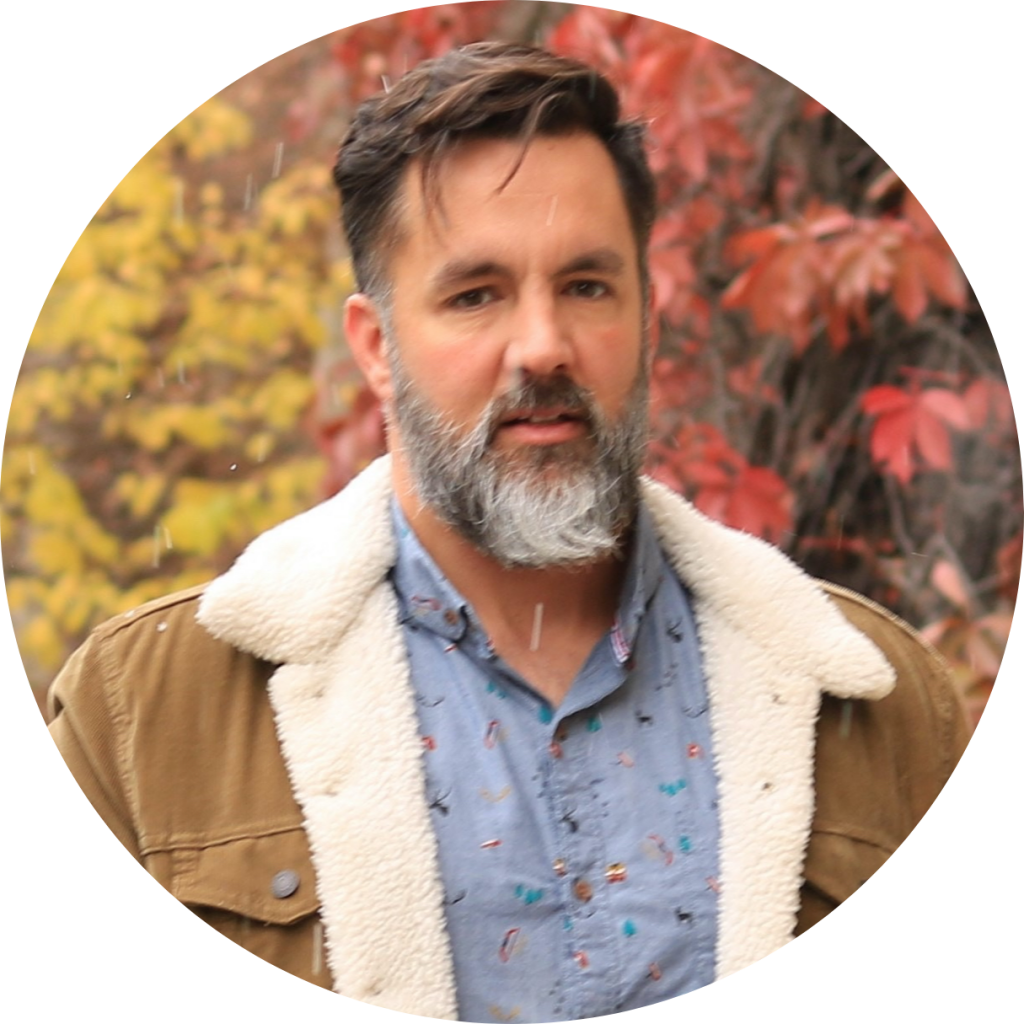
As the saying goes, “Journalism is the first rough draft of history.” Russell Cobb, on the other hand, specializes in second drafts.
As demonstrated in his new and impeccably timed book, The Great Oklahoma Swindle: Race, Religion, and Lies in America’s Weirdest State, Cobb possesses an eye for the details that slipped through the cracks, which he re-frames in ways fresh and compelling. In it, he weaves together scholarship, memoir, and commentary into a cohesive narrative that makes sense of the most contradictory state in the Union. It’s no small undertaking covering so many disparate movements in one brief book—Black and Indigenous sovereignty, the Socialist Party of America, a Klu Klux Klan coup attempt—let alone explaining how they’re connected.
The associate professor, radio journalist, and nonfiction author has long held a fascination with what does, or does not, become “history,” and how it’s framed. But some things you can’t plan for, like his book release. It overlapped with pertinent racial injustice demonstrations and a disastrous Trump rally in Tulsa that gave new weight to Swindle’s revelations. Hence, Swindle is already en route to second printing.
Russell’s next historical project will see him return to podcast form. His 2005 This American Life episode, “Heretics,” told the story of a young Pentecostal bishop who staked his reputation on the radical belief that hell does not exist. (It later became the Netflix film Come Sunday, starring Chiwetel Ejiofor as Pearson.) The new podcast is an eight-episode series with NPR about oil swindles of Black and Indigenous Oklahomans.
You can learn more about it, and the production process, during his July 30th masterclass on historical nonfiction narratives. In History Worth Repeating, he’ll help guide you through the process of researching and narrating history for mainstream audiences.
PanU asked Russell for a little preview. He talked to us about the experience of having his work adapted into a Hollywood film, how 2020 events have changed his view of his new book, and his forthcoming podcast series.
Register for History Worth Repeating (C$20)How did you feel watching your This American Life story on Netflix for the first time? As a historian, did Come Sunday capture the hero of “Heretics”?
Seeing all these amazingly talented people in a movie about the preacher at the centre of the story, Carlton Pearson, made me very happy. He’d lost everything, and staked his comeback on a gospel of inclusion. It hadn’t gone well for him. Evangelicalism, as we’ve seen, is rooted in core beliefs, which Carlton had questioned. But I don’t think the movie captured Carlton’s unique sense of humour and wit. The man is brilliant and funny. The movie was a bit dark.
The timing of your new book couldn’t have been predicted, or better. It coincided with both Trump’s controversial Oklahoma rally and global Black Lives Matter demonstrations. Did that change your view of your book?
The timing has been so strange. I had all these events lined up in March and April in Oklahoma. They all had to be cancelled and that was very disappointing. But then Trump decided to choose my hometown as the site of his campaign relaunch—on Juneteenth!
I wouldn’t say I ‘discovered’ forgotten histories; they have been there all along. People just haven’t known where to look or what to look for.
Suddenly, the eyes of the entire world were on Tulsa, the place I know the best. Suddenly CBC, New York Times, The Atlantic were asking me about Tulsa. Specifically, the Race Massacre of 1921. I have a deep personal connection to the place, and an abiding obsession in knowing not only how the Massacre happened, but how white Tulsa kept this secret for so long.
I was a nervous wreck when the Trump rally took place, but it ended not with a bang but with a whimper. Then, just a couple weeks after the rally, the Supreme Court decided that most of eastern Oklahoma, and Tulsa itself, was still an “Indian Reservation.” Indigenous legal scholars have called it the most important ruling in 200 years for Indian Country. Like my book title says, it’s America’s weirdest state.
On a similar note, what was it like “discovering” groundbreaking history about your hometown that was hiding in plain sight? What kind of feedback did you get from Oklahomans?
I wouldn’t say I “discovered” forgotten histories; they have been there all along. People just haven’t known where to look or what to look for. I decided to finely tune my microscope on the nexus of oil, land, and identity. Once I decided that was the focus, things started to make sense.
How was it that Oklahoma went from being the “Promised Land” for blacks to the site of the worst incident of American racial violence? Because Black people in Oklahoma had land, which they didn’t have in other parts of the South. Not only did they have land but that land was part of the first huge oil boom in 20th century America. Vast wealth, then vast dispossession and violence.
My contribution is that I’ve found documents that show this process was not a coincidence, and it wasn’t because whites were simply jealous of blacks. It was a legalized theft based on oil.
What can you tell me about your forthcoming podcast series?
It’s a serialized podcast produced through KOSU, an NPR affiliate in Oklahoma. The craziest story I found in researching oil swindles of Black and Indigenous people in Oklahoma relates to a boy who was probably a fictional creation. I asked my research partner, who is Muscogee (Creek), how a Native American boy could have been fictionalized by an oil man. She’d never heard of that before.
We started trying to figure out if this kid, whose land was worth $20 million in 1920s dollars (about $250 million today), was a real person. The answer turns out to be extraordinarily complex. My co-host and I try to unravel the mystery over 8 episodes. We have a pilot and are working on more episodes before we launch.
Lastly, which books, movies or TV shows are getting you through the pandemic?
I’ve been reading a lot. Some of my recent favourites have been David Treuer’s The Heartbeat of Wounded Knee and Rebecca Solnit’s A Paradise Built in Hell. I’m watching The Office with my 11-year-old to relax, and the whole family loved Hamilton, even though it’s problematic for a whole host of reasons. [Editor’s note: Reasons we don’t have time to get into.]
The interview has been edited for clarity and brevity.
Register for History Worth Repeating (C$20) Buy His Books